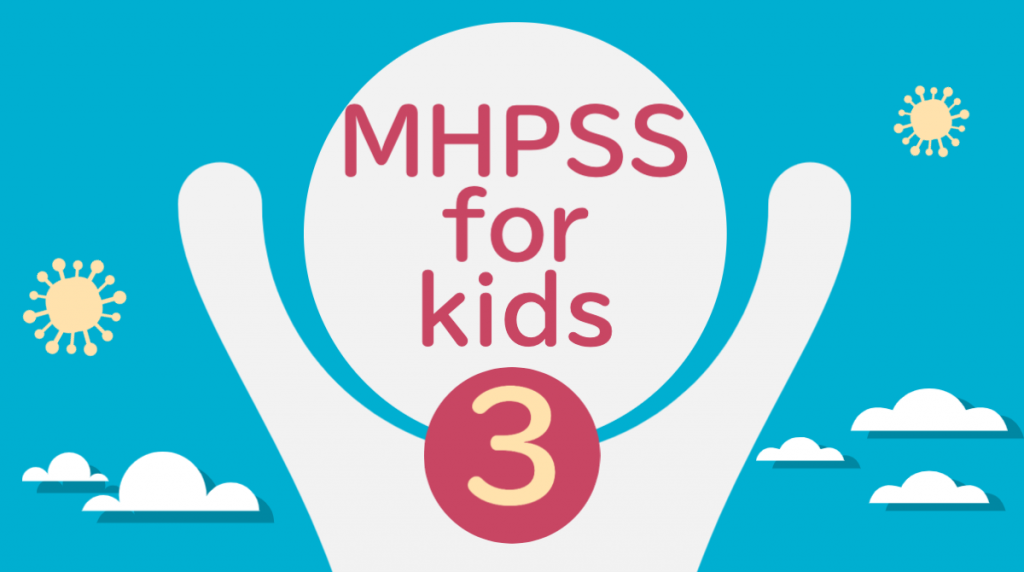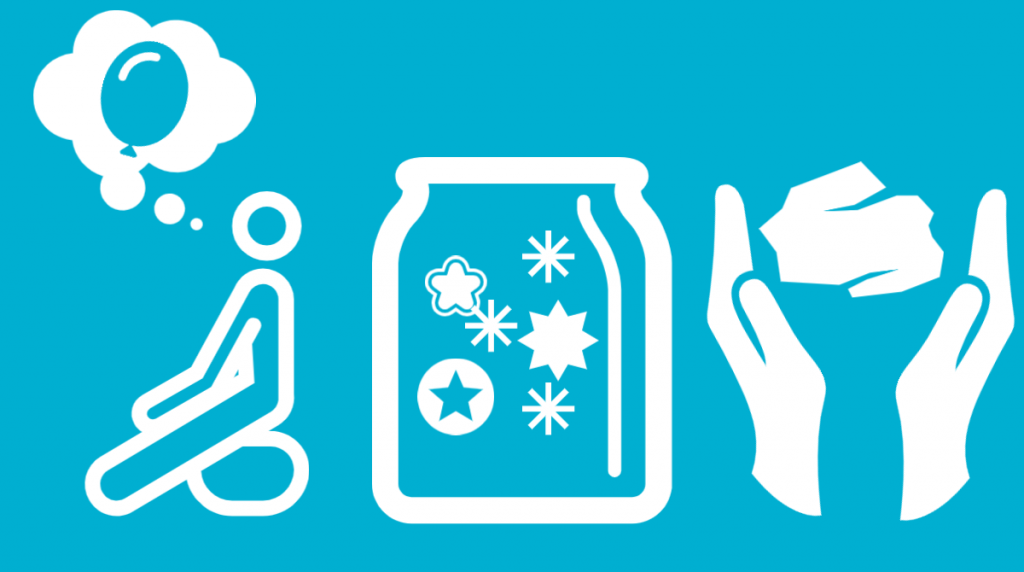
MHPSS ( Mental Health and Psychosocial Support ) for children under COVID-19 (3)
The stressful situation caused by COVID 19 will probably last for a while. In the first two articles, we talked about the children living in a society threatened by COVID 10. Today, we are going to discuss how we should get prepared as adults who deeply care about the children.
Your frustration, tension, fear, anxiety and worry greatly affect the mood and behaviors of the children you want to protect.
Frustration, tension, fear, anxiety and worry
weaken your ability to notice things;
weaken your ability to listen;
and weaken your ability to protect.
What you are feeling and thinking also affects what your children feel and think.
Remember, it is natural for you to feel frustrated, anxious or worried right now. Everybody in the world is tackling with the issues of COVID 19 every day. Uncertainty about the future is causing anxiety for everybody. Now we would like to tell you what adults can do based on five situations and share with you some mental relaxation techniques you can use on your own.
Five situations
・If you are a parent of a young child
・If you are a parent of an adolescent child
・If you are married
・If you are concerned about a child you know
・If you are a parent and a caregiver for a sick/elderly person
If you are a parent of a young child
1. Keep regular hours even though there is no school. It helps if you make a timetable.
2. Talk about your own worries and troubles to your child. Your child can support you.
3. It is also important for your child to be connected with other children. Let them talk using a video chat, etc.
If you are a parent of an adolescent child
1. Believe in your child. Many children in this age group can discipline themselves.
2. Consult with your child. Children in this age group are able to gather information very quickly. Your child may become very willing to help you if you ask them to check the latest news about COVID 19. Discuss with them whether the information is “trustworthy”.
3. Rely on your child. Children in this age group can be a great helper if they are asked instead of being criticized. Thank them if they help. Showing gratitude can be the greatest motivator for your child to help you again.
If you are married
1. Every time your spouse takes care of your child or does housework, say thank you.
2. If children see their parents having fight, they feel even more insecure.
3. Care about your spouse’s health. If one of you gets infected, your life would be even more difficult.
If you are concerned about a child you know
1. Ask the child’s parents if there have been any big changes.
2. Sometimes you should give higher priority to providing support to the parents than the child. Your little help may protect the child.
3. Do not hesitate to contact the Department of Children and Families if the child’s life seems to be in danger. You can call them anonymously.
If you are a parent and a caregiver for a sick/elderly person
1. It is very hard to protect your child while being a caregiver. Think about someone who can help you.
2. Contact the person and ask for help.
3. If you cannot think of anyone, contact the local comprehensive care center. Try to increase supporters for you.
Three ways to relax your mind

Deep breathing
This is one of the few techniques anyone can use any time. It is important to start with exhaling. Imagine you have a balloon of your favorite color in your body. Repeat breathing into the balloon slowly and breathing out of the balloon slowly.
Calm Down Jar
Put water, glitters and small pieces of gold/silver origami paper or aluminum foil in a jar with a lid. Shake the jar hard and then place it on a table. Watching glitters and other sparkling materials falling down help you calm down. You can also use a “snowball”.
Paper ball
Write down your frustration on the back of a piece of paper, crumple it and hold it in your hand.
Throw it into a trash can, and you will part with your frustration.
As you have already guessed,
you can do all these three activities with your child.
Your child may even do better than you!
Of course, you can also try these alone.
References
IASC Guidelines on Mental Health and Psychosocial Support in Emergency Settings, 2007:
Save the Children Psychological First Aid Training Manual for Child Practitioner:
WHO Psychological first aid: Guide for field workers: